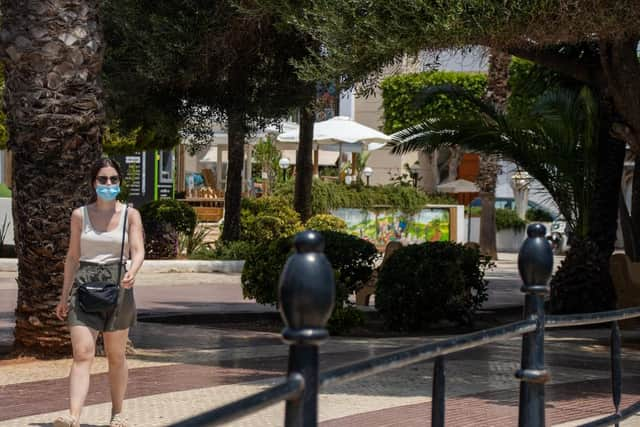Are Tenerife and Ibiza on the quarantine list? If you have to self isolate after a trip to the Canary or Balearic islands
Those wanting to jet off to mainland Spain are being advised by the Foreign, Commonwealth and Development Office (FCDO) against ‘all but essential travel’ to the country.
Visitors returning to the UK from Spain are also required to quarantine for 14 days.
Advertisement
Hide AdAdvertisement
Hide AdBut are the Balearics and Canary Islands included in the travel advice and quarantine rules? Here’s what you need to know.


Can I still travel to the Balearics or Canaries?
The FCDO are still advising against ‘all but essential travel’ for the Balearic Islands, which comprise Mallorca, Menorca, Ibiza, and Formentera. A 14-day quarantine period is in place for those returning from the Balearics to the UK.
This rule also applies to all visitors returning from mainland Spain. The quarantine rules apply to people returning to England, Scotland, Wales and Northern Ireland.
However, the Canary Islands have now been removed from the UK’s quarantine list and are also exempt from the FCDO’s advice against all non-essential international travel.
The requirement to self-isolate on return to the UK from the Canary Islands was lifted on 25 October, but you must still self-isolate if returning to the UK from any other part of Spain.
The Canary Islands are Tenerife, Fuerteventura, Gran Canaria, Lanzarote, La Palma, La Gomera, El Hierro and La Graciosa.
What are the entry requirements for Spain?
Travellers entering Spain from the UK will not be required to self-isolate on arrival. However, they will be subject to the following three requirements:
- Provide the Spanish Ministry of Health with mandatory contact information and any history of exposure to COVID-19 48 hours prior to travel
- Temperature check
- Undergo a visual health assessment
Advertisement
Hide AdAdvertisement
Hide AdSpain will also soon introduce a new rule for visiting UK residents, requiring people to present a negative Covid-19 test on arrival.
The coronavirus test must be taken within 72 hours of travel to Spain, and previous regulations are also still in place.
The new rule, which will come into place from 23 November, was confirmed by Spain's Ministry of Health in an official statement, which said, "Spain will require international travellers from risk countries to have a negative PCR in the 72 hours prior to arrival in Spain in order to enter the country.
"This measure is in addition to the health controls that are currently being carried out on all international passengers at the points of entry. Thus, temperature control and visual control are maintained.
"The document must be the original, written in Spanish or English and may be submitted in paper or electronic format."
A similar rule will come into effect prior to this for Spain’s Canary Islands, with the Foreign, Commonwealth and Development Office (FCDO) explaining that, “From 14 November, travellers to the Canary Islands will need to provide a negative Covid-19 test when checking-in to regulated tourist accommodation.
“Do not use the NHS testing service for a test to travel to the Canary Islands. You should arrange to take a private test.”
Why are mainland Spain and the Balearic Islands on the quarantine list?
Advertisement
Hide AdAdvertisement
Hide AdThe travel advice for parts of Spain is based on the risks of COVID-19 in the country.
The FCDO is currently advising against all but essential travel to Spain, including the Balearic Islands but excluding the Canary Islands, based on the current assessment of Covid-19 risks.
Travellers should follow the advice of the local authorities on how best to protect both themselves and others, including any measures that the authorities bring in to control the virus.